
- Home
- Coronavirus: ‘Home school is hard - even for teachers’
Coronavirus: ‘Home school is hard - even for teachers’
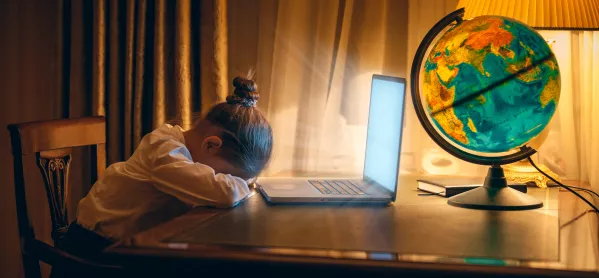
The speed of change, when it all kicked off, was lightning quick. In and around the international school in Beijing where I work, the fear of the virus really began to spread the week beginning 20 January.
On 24 February all schools were told to limit mass gatherings, so school went ahead but Chinese New Year assemblies were cancelled for that day. The next week was a holiday. By Monday we were told all schools would be shut indefinitely and that we could leave the country if we wished.
By Wednesday, me and my kids, aged 10 and 7, were back home in Glasgow. My wife, who works for the BBC in Beijing, has remained there, working ludicrous hours and mainly sleeping on the BBC bureau floor. We have been separated for seven weeks.
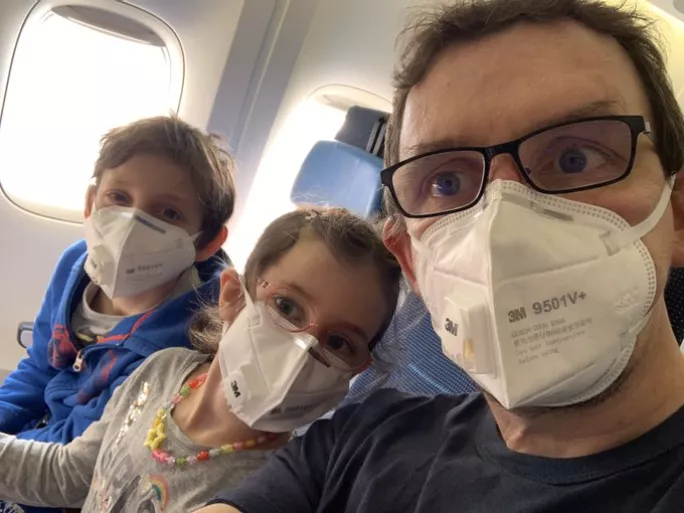
When we arrived in Glasgow, little was known about the virus and we chose to self-isolate for two weeks. I was teaching and leading a team of six teachers, trying to get systems up and running for virtual learning. My team was spread across the globe, from Miami to New Zealand, with a timezone difference of 18 hours, and me sandwiched in between.
Our students were similarly across the globe. Many had gone on holiday and did not have laptops or iPads, only mobiles. Others were now contained within the strict measures newly imposed in Beijing.
Opinion: Could coronavirus lead to real 21st-century learning?
A headteacher’s view: The impossibility of planning for coronavirus in school
Coronavirus: Starting a teaching career amid Covid-19
Covid-19 family lockdown day one: ‘14 friggin’ days?!’
I was then swamped with the triple task of leading a team, preparing and managing systems for teaching my own class - as well as home educating and single parenting my kids. At first, I openly expressed to friends how much I was looking forward to the home-educating part. I’m a teacher, I have skills with this stuff. And these are my kids. It would be like the best continuous snow day possible!
Erm…it was HARD. I was permanently on my screen, trying to keep everything going at school, supporting staff, students and parents. Luckily I have amazing colleagues and a very supportive school community who have worked tirelessly and cared for each other.
After a week, we approached the council about getting the children enrolled in local schools. Two weeks later, they were back at school and loving it. The social dynamic and bonding had been sorely missed, as were the structure and the scheduled breaks.
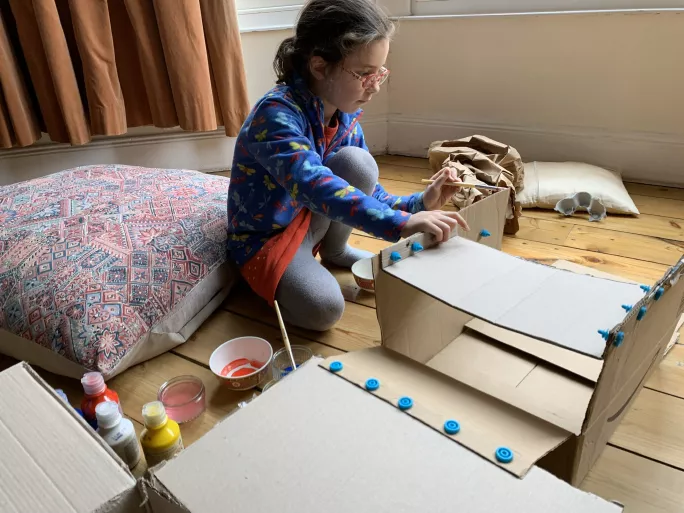
It looks like UK schools will inevitably close soon [this piece was published shortly after it was announced that schools would close in Scotland and Wales at the end of the week]. How much structure should a parent provide or hope to maintain? As a parent, I was bombarded with information from my school. It was helpful and constructive, but too much to take in in one gulp.
Once we got a system going, it worked fairly well. I had taken lots of books, mini-whiteboards, games and an extra iPad with me. But even then, I found myself frazzled trying to cope with my own work and keeping the kids focused and motivated. Break times were spent eating snacks and listening to episodes of Wow In The World podcasts (absolute gold for kids).
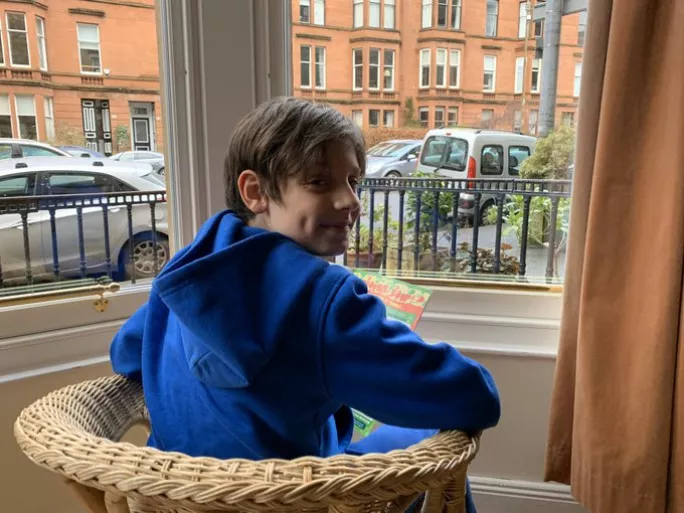
Afternoons were spent outside or on “field trips”. I bought scooters and that became our PE lesson. We hoarded boxes and loo rolls and made a gigantic junk airplane. We drew pictures. We visited museums and art galleries. Then, when they were in bed, I spent the rest of my evening working again. A sense of routine is key. Establish it and maintain it.
I posted daily video messages for my kids. Asked them questions through an online form. I also used the app Flipgrid to bridge the face-to-face divide and have some fun and levity as a school community. Two examples: lip sync challenge and teacher “read alouds” made by staff.
I have also used Zoom to live conference. But this was challenging as my kids were so spread out across the globe. We do live quizzes and live just dances and Pictionary. But I actually find Flipgrid and asynchronous connections more inclusive and valuable. Kids watch them again and again, and a lesson is permanently there for further viewings.
Face to face is the biggest loss for kids. They miss friends and the social dynamic of school, which is impossible to replicate at home or on Zoom. They are the most social of creatures and need that space away from us as much as we need a glass of wine or two at 8pm on a Friday. They feel isolation, boredom and frustration, too. Although online games are good, they risk stripping kids from the normal social interaction of school. We tried to do as many analogue activities as possible.
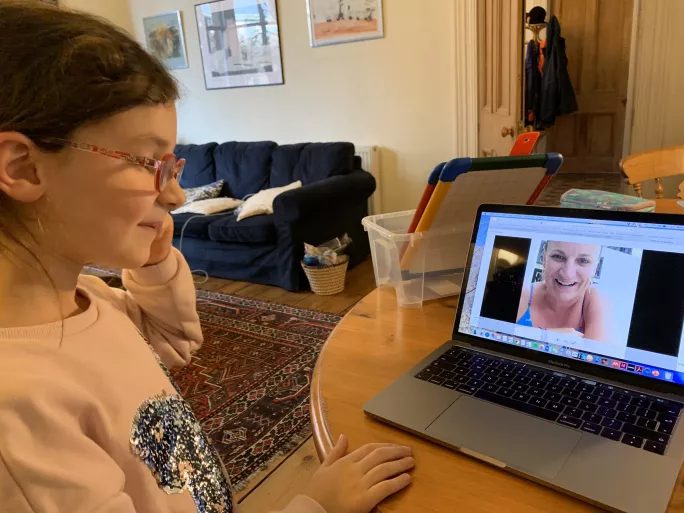
For the first week of online learning, we set lots of reminder links for online platforms we use in school, partly to give us breathing space. But parent reaction was quite mixed: they worried that their child was spending too much time on the iPad in school, which could not be further from the truth.
So, in week two, we focused all our efforts on quality, easy-to-explain offline tasks that require next to no devices. We also used a platform called Wakelet to organise things better and be more visual. This went superbly and this link shows what the system looks like. And here is one I put together to support kids with their understanding of coronavirus.
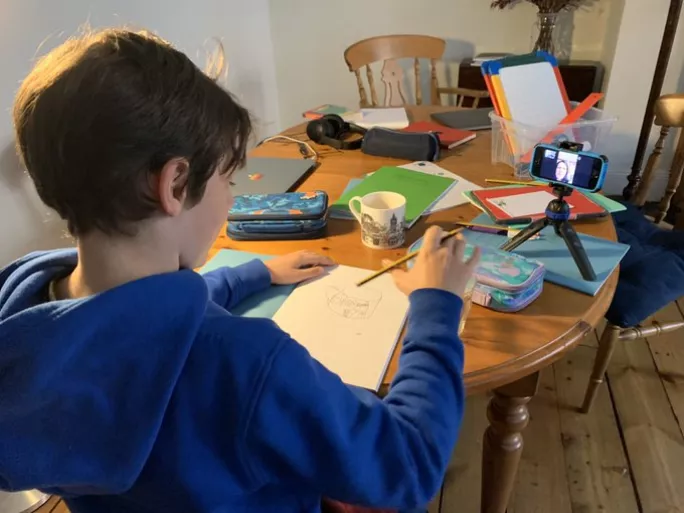
The biggest unforeseen challenges? I feel gravitationally pulled toward news and updates online. I try to read or watch Netflix in the evenings but, even then, my phone is in my hand - I can’t find the strength to put it down.
Now coronavirus is global, it feels impossible to escape the fear, anxiety and emotions, which add to the intense isolation that comes from spending long hours working on screens and being contained inside the home. I’ve not perfected the balance and I doubt anyone will. Yes, we are positive for and in front of our kids and students. But in quiet moments of reflection, black humour and lots of swearing keeps me going in WeChat and WhatsApp groups! I’ve also eaten a lot of biscuits and crisps: self-health is a huge challenge.
To families, I would say this: don’t lose each other in separate online worlds. You on Facebook, them on Minecraft. Find ways to interact together on screens (FaceTime, messages, social gaming, family movies), but also away from screens. The social interaction they miss is also more about not being with other people physically. Board games, card games, long walks, bike rides: all that old-fashioned stuff works.
And parents should ditch their phones during this family time - but I know that’s easier said than done.
Athole McLauchlan is a teacher from Scotland who has been working in China for three years
Register with Tes and you can read five free articles every month, plus you'll have access to our range of award-winning newsletters.
Keep reading for just £4.90 per month
You've reached your limit of free articles this month. Subscribe for £4.90 per month for three months and get:
- Unlimited access to all Tes magazine content
- Exclusive subscriber-only stories
- Award-winning email newsletters
You've reached your limit of free articles this month. Subscribe for £4.90 per month for three months and get:
- Unlimited access to all Tes magazine content
- Exclusive subscriber-only stories
- Award-winning email newsletters
